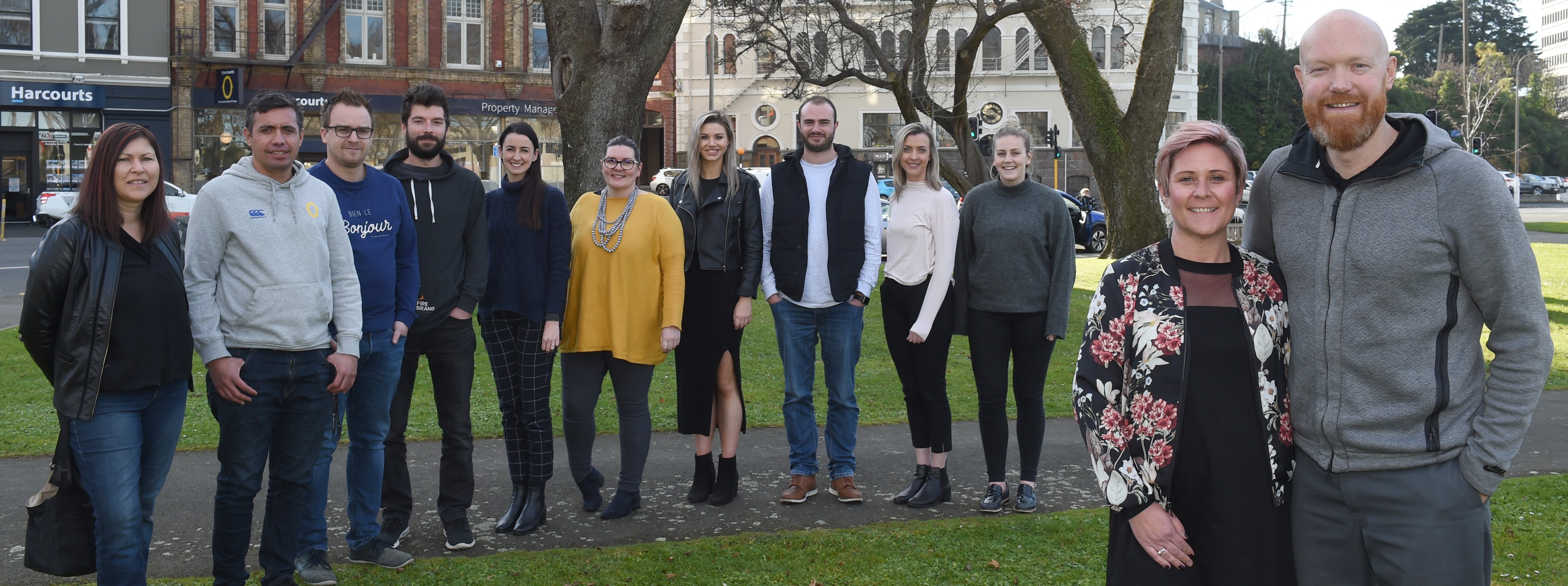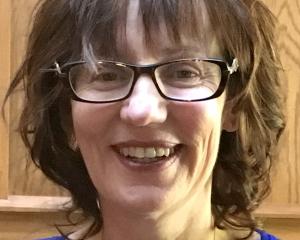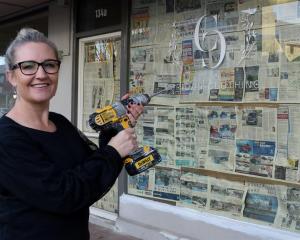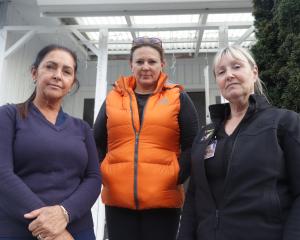
The ''Dunedin story'' has been an integral part of Firebrand's story.
The city's embracing of startups and of alternative ways of doing business has allowed Firebrand to ''become who she is'', Rebecca Twemlow says.
When Firebrand was launched 10 years ago, it was an ''epic'' time for the couple, given it was between the arrivals of their two children, Tayla (now 11) and Mason (9), and in the midst of the global financial crisis.
But it was also perfect timing given that the iPhone was new - ''suddenly everyone had the internet in their hand''.
As a time span, 10 years felt like a long time but for Mrs Twemlow, it still felt fresh and new and exciting - ''most days'', she quipped.
They were involved in an industry that was ever changing so they constantly needed to be looking at the horizon and seeing what was out there, Paul Twemlow said.
Firebrand had always been described as a web design and marketing business; now it was a marketing and digital transformation agency with the tagline ''we start, build and grow New Zealand businesses with attitude''.
Asked how they had managed to build a business at the same time as having young children, Mrs Twemlow said they always had incredible family support.
They had also worked ''damned hard''. But they loved what they did so it had not been a labour.
''I live and breathe understanding how things work ... it has been something I continue to love every day.''
There was still some pushback about having female leadership, ''but I've learned how to deal with that'', she said.
Firebrand was born and bred in Dunedin; both she and her husband grew up in the city and they used the networking connections that they had.
''We faked it a lot because we had nothing to prove that we were capable,'' she said.
''But we were capable,'' Mr Twemlow added.
Those they surrounded themselves with all bought into their ethos. Relationships were key, as were taking care of and listening to clients.
The business partnered with clients to understand their story, brand, who they needed to connect to, and how to do that in a cost-effective way.
Pivotal moments included a significant partnering in the first year with the University of Otago's department of microbiology and immunology, which needed a new website.
The department already had some proposals but after being given a chance to pitch, Firebrand poured ''hundreds'' of hours into a design that was then selected.
From there, other key projects and client relationships included the Get Home Safe app, which became certified as a cloud service to the New Zealand government.
Firebrand was a finalist in the Innovation NZ awards in 2013 for that project, which was launched by Queenstown entrepreneur Boyd Peacock to privately monitor users' locations and raise a preset alarm if they did not reach their intended destination safely.
Then there were the likes of the Trade Tools Group, Fire and Emergency New Zealand and Fiordland Lobster, which was the supreme winner of the recent HSBC New Zealand China Trade Association awards.
Those organisations and businesses were not in Dunedin and, four years ago, the couple looked at moving Firebrand to Auckland, believing that was what they needed to do.
But then came the realisation not only of what that would cost, but also that they would have to ''change the whole ethos'' around the company as well.
Being authentic and from Dunedin had been a 'real bonus'' and people were often jealous when they heard they were from the city.
''The Dunedin brand is one that people are very proud of and it's a great conversation starter in Auckland,'' Mrs Twemlow said.
Face-to-face meetings - which were easy to have in Dunedin - would also have been much more difficult in Auckland, Mr Twemlow added.
During the past decade, they had seen ''others come and go'' and learned lessons about the right fit for the culture of their company.
It had also been about bringing in young people and taking care of them.
Remaining humble was another reason for their success, Mrs Twemlow said.
Firebrand, which has a team of 13, would be marking its anniversary with a function on July 25th, combining its party with an Otago Chamber of Commerce Business After 5 function at Equinox.
The emergence of globalisation was on Mrs Twemlow's mind a lot.
''People can buy anything from anywhere and perhaps use services ... like ours, from anywhere.''
''I'd love for Dunedin organisations and business leaders to consider long-term impact of using organisations outside of Dunedin for that.
''If they want to have employment opportunities for their own children to come back to, and bring their families back, they have to support the businesses in Dunedin.''
Firebrand had made a very conscious decision not to outsource its team, aware of the need to have ''a place for our young people to come to''.
The next 10 years would see continued disruption with technology for local businesses and enterprises.
There would be a continued need to tell a story about whatever its clients were up to, doing that in a unique way so as to ''rise above the noise of content for content's sake''.
Mrs Twemlow also believed there would be a return to the importance of relationships and face-to-face connections.
''I think Dunedin is going to see a continued parochialism happening as well, where we will start to come back and support our cottage industries and our local production and organisations, in a digital way, though,'' she said.
Mrs Twemlow is one of the drivers of Youth Employment Success (Yes), which was launched in Dunedin in 2016 with the goal of finding employers who were offering opportunities to young people and telling their positive stories.
The opportunities offered were varied: it could be a job, or a chat about career progression, or the industry. It could be a mock interview, or assistance with a CV.
There were now more than 80 Yes employers in Dunedin and more than 20 in Gore and there were negotiations to roll it out to other centres.
Mrs Twemlow is also on the board of the Otago Chamber of Commerce. Her term expires in October and she is pondering whether to run again.
It was about understanding the future of membership organisations; people wanted to understand the value that membership brought, particularly when time was precious, she said.
But she also believed it was key to the future of Dunedin to ensure that people like herself were involved in the strategy and governance of those organisations.











